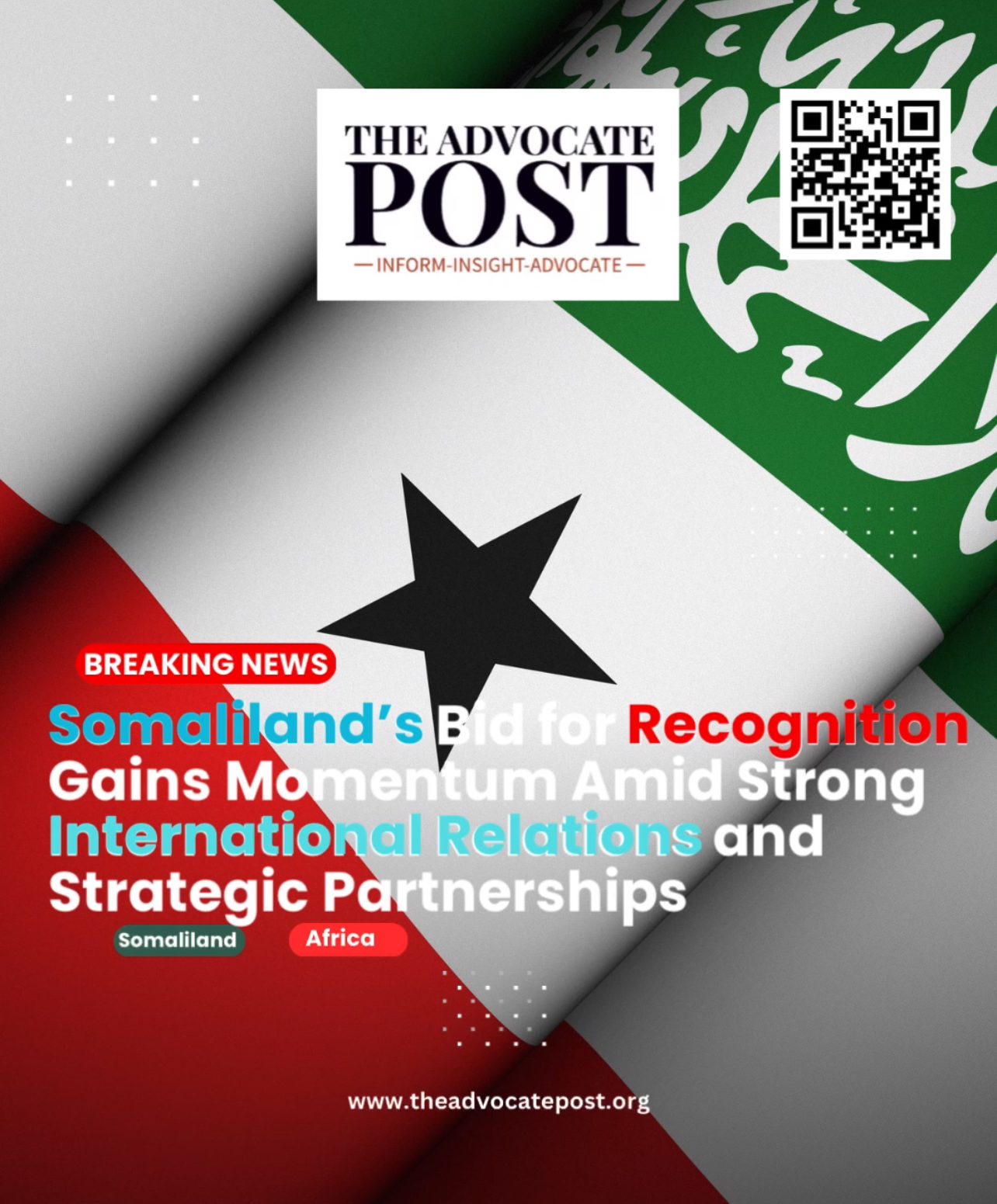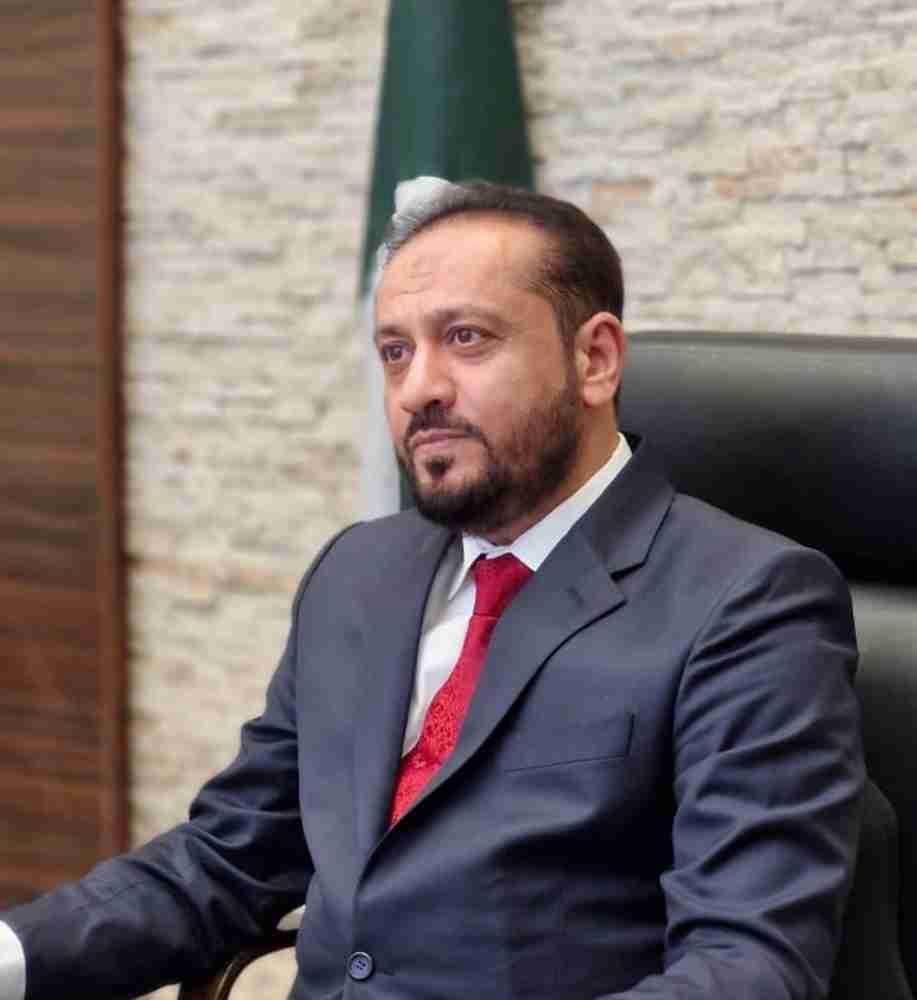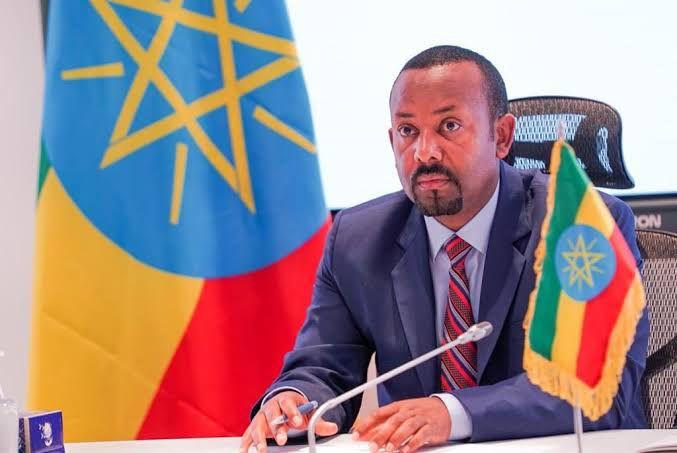By News Desk
Somaliland, the self-declared independent republic in the Horn of Africa, continues to build its case for international recognition, backed by its growing political stability and strategic importance in the region. Since declaring independence from Somalia in 1991, Somaliland has established itself as a beacon of peace and governance in a volatile region, gaining informal diplomatic ties with several key countries despite its lack of formal recognition.
One of Somaliland’s most important regional relationships is with Ethiopia. As a landlocked country, Ethiopia relies heavily on access to the Berbera port, Somaliland’s gateway to the Red Sea and a crucial trade route for the Horn of Africa. In 2016, Ethiopia signed a deal to become a shareholder in the Berbera Port expansion project, alongside the United Arab Emirates-based DP World, underscoring the port’s growing significance as a commercial and strategic hub. The expansion of Berbera aims to rival Djibouti’s ports, providing Ethiopia with a valuable alternative for its trade routes.
Somaliland’s strategic partnership with Ethiopia has not only boosted trade and economic cooperation but also enhanced its regional standing. Ethiopia has long advocated for increased diplomatic engagement with Somaliland, recognizing its stability and potential for regional development. The two nations maintain robust trade and security cooperation, focusing on shared concerns such as counterterrorism efforts, given the security threats posed by al-Shabaab militants in neighboring Somalia.
In addition to Ethiopia, Somaliland has cultivated unofficial ties with other countries, including the United Arab Emirates and the United Kingdom. The UAE, through DP World, has invested heavily in the development of the Berbera corridor, creating job opportunities and strengthening Somaliland’s economic foundation. The UK, though not formally recognizing Somaliland, has been supportive of its democratic processes and regularly engages with its leadership on security and development matters.
Somaliland’s stability, relative to the unrest in Somalia, is increasingly seen as an asset by international partners. Its functioning democracy, with regular elections, and its peaceful transfer of power in past elections, stand in contrast to the political turbulence of the region. This has strengthened its argument for international recognition, as it continues to push for diplomatic ties with African Union member states and beyond.
Gaining formal recognition would open doors for Somaliland to secure international loans, attract foreign investment, and participate in global forums, providing the region with much-needed support for further economic and infrastructural development. Its strategic location along the Red Sea, near some of the world’s busiest shipping lanes, also enhances its geopolitical significance, making Somaliland a vital player in regional trade and security.
As Somaliland continues to pursue formal recognition, its strengthening relationships with key regional and global players, particularly Ethiopia, highlight its growing importance in the Horn of Africa. With the Berbera port as a cornerstone of its economic strategy and a model of stability in a turbulent region, Somaliland’s push for recognition is gaining momentum, and its role as a strategic partner is becoming harder for the international community to ignore.





